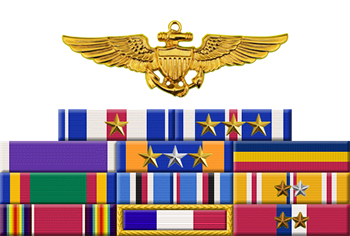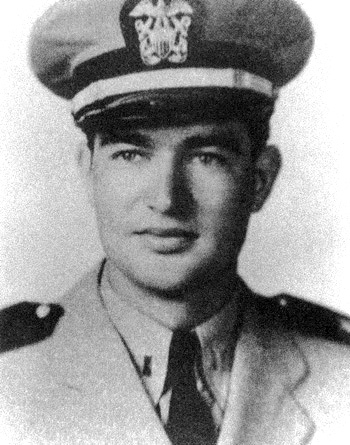
|
Douglas Baker |
 |
|||
| Rank, Service | ||||
Lieutenant, Junior Grade, U.S. Navy |
||||
| Veteran of: | ||||
|
||||
| Tribute: | ||||
Douglas Baker was born on August 27, 1921, in McLain County, Oklahoma. He enlisted in the U.S. Naval Reserve on June 30, 1942, and entered the Aviation Cadet Program of the U.S. Navy on August 7, 1942. Baker was commissioned an Ensign in the U.S. Navy and was designated a Naval Aviator at NAS Pensacola, Florida, on August 2, 1943, followed by additional training at NAS Jacksonville, Florida, from August to October 1943. After attended Carrier Qualification Training in Glenview, Illinois, he joined VF-20 at NAS San Diego, California, in November 1943, and deployed with his unit aboard the aircraft carrier USS Essex (CV-9) in April 1944. After additional operational training in Hawaii, he deployed with his unit aboard the aircraft carrier USS Enterprise (CV-6) in August 1944, and then to the aircraft carrier USS Lexington (CV-16) in November 1944. LtJg Baker was credited with the destruction of 16.333 enemy aircraft in aerial combat, plus 1 damaged in the air, all while flying the F6F Hellcat, between October and December 1944 over Formosa and the Philippines. He was Killed in Action over Clark Field in the Philippines on December 14, 1944, but was officially listed as Missing in Action until being declared dead on December 15, 1945. His remains were recovered in 1947, and he was buried at Green Hill Cemetery in McClain County, Oklahoma. |
||||
|
||||

